|
Books Should Be Free Loyal Books Free Public Domain Audiobooks & eBook Downloads |
|
|
Books Should Be Free Loyal Books Free Public Domain Audiobooks & eBook Downloads |
|
Philosophy Books |
|---|
|
Book type:
Sort by:
View by:
|
By: Jonathan Edwards (1703-1758) | |
|---|---|
 Dissertation Concerning the Nature of True Virtue
Dissertation Concerning the Nature of True Virtue
Disproportionately remembered as a hellfire-and-brimstone Puritan preacher on the basis of the excessively-anthologized "Sinners in the Hands of an Angry God," Jonathan Edwards was a noted philosopher in the field of Aesthetics, or the metaphysics of Beauty. An examination even of his sermons reveals constant references to this philosophical preoccupation, his favorite word in many passages seeming to be "Sweetness," by which term he intended to convey a rich sense of Beauty. In "A Dissertation... | |
By: Josephine Preston Peabody (1874-1922) | |
|---|---|
 After Music
After Music
Josephine Preston Peabody was an American poet and dramatist. She was born in New York and educated at the Girls’ Latin School, Boston, and at Radcliffe College. | |
By: Julia M. Grundy (b. 1874) | |
|---|---|
 Ten Days in the Light of Acca
Ten Days in the Light of Acca
This work is the story of a pilgrimage made over a hundred years ago by a group of American pilgrims. They were not headed for Canterbury, Rome or Jerusalem. Rather, they were headed for an historical but remote prison-city in a far corner of the Ottoman Empire. ‘Akká (Akko), now a city in Israel which attracts thousands of Bahá’í pilgrims each year, was but little thought of in that early period. It was originally the final place of exile and imprisonment for Bahá’u’lláh, a Persian nobleman who proclaimed that He was the Promised One of all religions and Messenger of God for this day and age... | |
By: Kahlil Gibran (1883-1931) | |
|---|---|
 Madman: His Parables And Poems and The Forerunner: His Parables And Poems
Madman: His Parables And Poems and The Forerunner: His Parables And Poems
Two short books by the Lebanese-American writer, poet, and mystic. Reflections on existence and life, purpose and meaning. His most famous work is The Prophet .The Madman, Part 1: Introduction; God; My Friend; The Scarecrow; The Sleep-Walkers; The Wise Dog; The Two Hermits; On Giving And Taking; The Seven Selves; War; The Fox; The Wise King; Ambition; The New Pleasure; The Other Language; The Pomegranate; The Two Cages; The Three Ants; The Grave Digger; On The Steps Of The Temple; The Blessed City... | |
By: Karl Marx | |
|---|---|
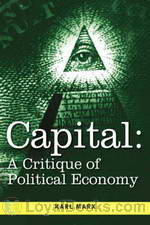 Capital: A Critical Analysis of Capitalist Production
Capital: A Critical Analysis of Capitalist Production
Karl Marx’s Capital: A Critical Analysis of Capitalist Production is a critical analysis of the political economy or the capitalist system. In this 3 volume work, he says that a capitalist economy can only survive by exploiting the working class. The concepts discussed in this book laid the foundations of the political doctrine that would later be known as communism. This book has three volumes, the first volume is Marx’s critical analysis of the capitalist mode of production and how it’s effects on poor people... | |
 Eleven Theses on Feuerbach
Eleven Theses on Feuerbach
The “Theses on Feuerbach” are eleven short philosophical notes written by Karl Marx in 1845. They outline a critique of the ideas of Marx’s fellow Young Hegelian philosopher Ludwig Feuerbach. The theses form a basis for the activism emphasised by Marx’s work, and this short text is perhaps best know for its ending – a Eureka for revolutionary socialism. The theses were written in 1845, but not published until 1888 (five years after Marx’s death), with slight modifications by Friedrich Engels. The original text was published in 1924. This translation is based on the 1888 version. | |
By: L. W. Rogers (1859-1953) | |
|---|---|
 Elementary Theosophy
Elementary Theosophy
This book provides the basics of Theosophy and perhaps the beginning of a life long journey. Theosophy comes from the ancient wisdom that man and nature are as inseparable from the universe as the universe is inseparable from man and nature. It is a science and a philosophy, not a religion which depends on (dogma) faith. Knowledge gained through the study of Theosophy comes from the understanding of natural laws and harmony of the universe. Rogers shows us why we cannot separate ourselves from God (universe); the evolution of the soul; rebirth after physical death; why we don’t remember past lives and much more... | |
By: Lafcadio Hearn (1850-1904) | |
|---|---|
 Exotics and Retrospectives
Exotics and Retrospectives
Lafcadio Hearn, born 1850 in Greece, went to Japan when he was 40 years old and became a Japanese citizen only 6 years later. His writings about Japan from the beginning of the Meiji era, when the country was just opening to the West, remain among the most important explanations of Japanese culture. This book contains in the first part, "Exotics", his observations of and personal insights into Japan. For example, Fuji no Yama tells about him climbing the highest mountain in Japan; and A Question in the Zen Texts, Literature of the Dead, and Of Moon Desire try to explain Buddhist teachings... | |
By: Lao Tzu | |
|---|---|
 Laotzu's Tao and Wu Wei
Laotzu's Tao and Wu Wei
The classic of the Way and of High Virtue is the Tao Teh Ching. Its author is generally held as a contemporary of Confucius, Lao Tzu, or Laozi. The exact date of the book’s origin is disputed. The book is divided into two parts, the Upper Part and the Lower Part. The Upper Part consists of chapters 1-37, and each chapter begins with the word “Tao,” or the Way. The Lower Part consists of chapters 38-81, and each chapter begins with the words “Shang Teh,” or High Virtue. This 1919 edition names the Lower Part as the Wu Wei, or translated variously as “not doing,” “non-ado,” or “non-assertion... | |
By: Laozi | |
|---|---|
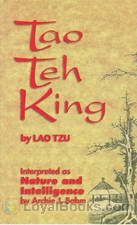 The Tao Teh King, or the Tao and its Characteristics
The Tao Teh King, or the Tao and its Characteristics
Written in classical Chinese some time during the sixth century BC, The Tao Teh King or The Tao and its Characteristics is a classical Chinese text that is one of the important keystones in understanding the thought systems of Asia. Though no clear records exist, it is traditionally thought to have been the work of the sage Lao Tzu, the founder of classical Taoism. He is reputed to have been a contemporary of Confucius, though this is also shrouded in mystery. However, many succeeding emperors and dynasties have claimed that he lived in their eras... | |
By: Leo Tolstoy (1828-1910) | |
|---|---|
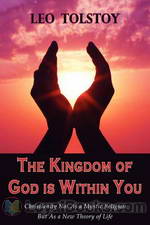 The Kingdom of God is within you
The Kingdom of God is within you
The title of the book comes from Luke 17:21. It is a non-fiction work of the famous Russian author Leo Tolstoy. He wrote it after many years of reflexion on Christianity and Jesus. Many subjects are present such as wars, non-violence, misunderstanding by believers of the faith, etc. | |
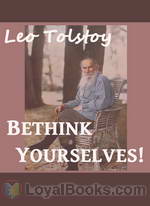 Bethink Yourselves!
Bethink Yourselves!
As Russia goes to war against Japan, Tolstoy urges those at all levels of society, from the Tsar down to the common soldier, to consider their actions in the light of Christ's teaching. "However strange this may appear, the most effective and certain deliverance of men from all the calamities which they inflict upon themselves and from the most dreadful of all—war—is attainable, not by any external general measures, but merely by that simple appeal to the consciousness of each separate man which, nineteen hundred years ago, was proposed by Jesus—that every man bethink himself, and ask himself, who is he, why he lives, and what he should and should not do... | |
 My Confession
My Confession
"My Confession" is a brief autobiographical story of Leo Tolstoy's struggle with a mid-life existential crisis of melancholia. It describes his search for answers to the profound questions "What will come of my life?" and "What is the meaning of life?", without answers to which life, for him, had become "impossible." Tolstoy reflects on the arc of his philosophical life until then: his childhood abandonment of his Russian orthodox faith; his mastery of strength, will, power, and reason; and how, after he had achieved tremendous financial success and social status, life to him seemed meaningless... | |
By: Lieh Tzu | |
|---|---|
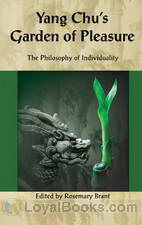 Yang Chu's Garden of Pleasure
Yang Chu's Garden of Pleasure
At the Court of Liang at the period of Yang Chu, about 300 B.C., the philosophers were treated as guests of the reigning king, who reserved for them lodging and maintenance, and encouraged all who had any pretence to the pursuit of truth and wisdom. Whether or not Yang Chu was actually a native of the Wei State, or whether he came there drawn by the attraction of a critical and unrivalled audience, it is at least certain that he settled there as small proprietor, probably in the reign of King Hwei, and continued there till his death, about 250 B... | |
By: Lucius Annaeus Seneca | |
|---|---|
 Of the Shortness of Life
Of the Shortness of Life
De Brevitate Vitae ("Of the Shortness of Life") is a moral essay written by Seneca the Younger, a Roman Stoic philosopher, to his friend Paulinus. The philosopher brings up many Stoic principles on the nature of time, namely that men waste much of it in meaningless pursuits. According to the essay, nature gives man enough time to do what is really important and the individual must allot it properly. In general, time can be best used in the study of philosophy, according to Seneca. | |
By: Ludwig Feuerbach (1804-1872) | |
|---|---|
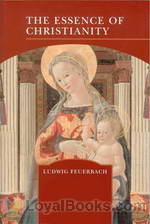 The Essence of Christianity
The Essence of Christianity
Taking issue with Hegel’s sense that God, as Logos, is somehow central to all that is, Feuerbach explores his own notion that Christianity, as religion, grew quite naturally from ordinary human observation. Only upon deeper, systematic reflection did people postulate a divine source–God. Religious teaching which loses sight of its own essential rootedness in human experience runs the risk becoming overly abstract, disconnected even, from realities which shape humanity and which impart meaning and dignity to life... | |
By: Ludwig Wittgenstein (1889-1951) | |
|---|---|
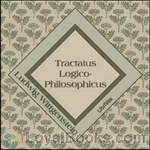 Tractatus Logico-Philosophicus
Tractatus Logico-Philosophicus
Tractatus Logico-Philosophicus is the only book-length philosophical work published by the Austrian philosopher Ludwig Wittgenstein during his lifetime. He wrote it as a soldier and a prisoner of war during World War I. The slim volume (fewer than eighty pages) comprises a system of short statements, numbered 1, 1.1, 1.11, 1.12, etc., through to 7, intended to be such that 1.1 is a comment on or elaboration of 1, 1.11 and 1.12 comments on 1.1, and so forth. It is an ambitious project to identify the relationship between language and reality and to define the limits of science. | |
By: Lysander Spooner | |
|---|---|
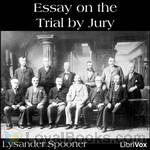 Essay on the Trial by Jury
Essay on the Trial by Jury
FOR more than six hundred years that is, since Magna Carta, in 1215 there has been no clearer principle of English or American constitutional law, than that, in criminal cases, it is not only the right and duty of juries to judge what are the facts, what is the law, and what was the moral intent of the accused; but that it is also their right, and their primary and paramount duty, to judge of the justice of the law, and to hold all laws invalid, that are, in their opinion, unjust or oppressive, and all persons guiltless in violating, or resisting the execution of, such laws... | |
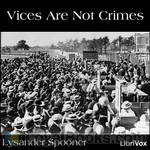 Vices Are Not Crimes
Vices Are Not Crimes
Lysander Spooner was an American individualist anarchist, entrepreneur, political philosopher, abolitionist, supporter of the labour movement, and legal theorist of the nineteenth century. Here he gives his views on the role of Governments in the private lives of their citizens | |
By: M. M. Mangasarian (1859-1943) | |
|---|---|
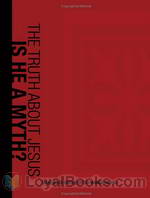 The Truth About Jesus. Is He a Myth?
The Truth About Jesus. Is He a Myth?
The following work offers in book form the series of studies on the question of the historicity of Jesus, presented from time to time before the Independent Religious Society in Orchestra Hall, Chicago, 1909. No effort has been made to change the manner of the spoken, into the more regular form of the written, word. | |
By: Marcus Aurelius (121-180) | |
|---|---|
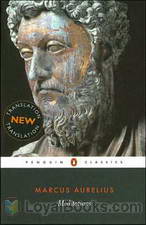 Meditations
Meditations
Marcus Aurelius was a Roman Emperor and philosopher who wrote Meditations; insights which were considered to give the meaning of life. The book was not written with the intent to be published. It offers a noteworthy chain of challenging situations which are a reflection on spirituality and enumerate the struggle to understand oneself and one's role in the universe. Written in the style of a journal, Meditations emphasizes that life in this world is short. Aurelius was a stoic philosopher who had influenced the thoughts of many leaders in his time... | |
By: Marcus Tullius Cicero (106-43 BC) | |
|---|---|
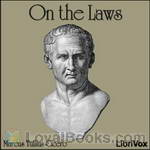 On the Laws
On the Laws
De Legibus (On the Laws) is a philosophical dialogue between: Cicero's friend Titus Pomponius Atticus; Cicero's brother Quintus; and Cicero himself. The dialogue is written in the style of Plato who was greatly revered by Cicero. De Legibus forms a continuation of Cicero's own work De re Publica (On the Commonwealth or On the Republic) and is also a response to Plato's work Νόμοι (Laws). It is unknown how many books the work originally contained but several complete books have been lost. Cicero's... | |
 Tusculan Disputations
Tusculan Disputations
Tusculan Disputations (Latin: TUSCULANARUM DISPUTATIONUM) is divided into five books which discuss death, pain, grief, perturbations and virtue. At issue is whether wise people can always be happy regardless of the apparent evil that fortune throws in their way. Andrew Peabody says the A. and M. in the text may stand for Auditor, Adolescens, Atticus or Aulus and Marcus or Magister. Written by Marcus Tullius Cicero. Translated by Charles Duke Yonge. | |
By: Marguerite Bernard and Edith Serrell | |
|---|---|
 Deer Godchild
Deer Godchild
A young New-Yorker of twelve heard an appeal for the Fatherless Children of France and his heart was touched. He had no money, but he resolved to give his spare time and his utmost energy to support a "kid in France." The French child needed ten cents worth of extra food each day, in order to grow up with strength and courage. The little American godfather earned those ten cents; he sold newspapers at the subway entrance, after school hours, and undertook an amazing variety of more or less lucrative odd jobs... | |
By: Maria Montessori (1870-1952) | |
|---|---|
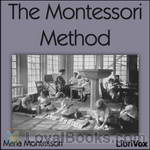 The Montessori Method
The Montessori Method
In the early 1900’s Dr. Maria Montessori began to reform educational methods with her work the ‘Case dei Bambini’ in Rome, Italy. Montessori began her work by developing methods to educate mentally retarded children, the method she developed was used with several children who at age eight took the state examinations in reading and writing, the children passed with above average scores. Because of this success (which is known as the ‘first Montessori Miracle’) Dr. Montessori was asked to open a school for children in Rome which she did... | |
By: Mary Everest Boole (1832-1916) | |
|---|---|
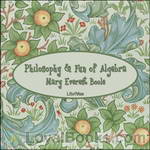 Philosophy and Fun of Algebra
Philosophy and Fun of Algebra
Mary Everest Boole (1832-1916) was born Mary Everest in England and spent her early years in France. She married mathematician George Boole. She was the author of several works on teaching and teaching mathematics in particular. This short book, Philosophy and Fun of Algebra, is meant to be read by children and introduces algebra and logic. She uses the word “algebra” broadly, defining it as a “method of solving problems by honest confession of one’s ignorance”. Using this definition, Boole introduces, in a conversational manner, the concepts of logic and algebra, illustrating these concepts with stories and anecdotes, often from biblical sources... | |
By: Mary Wollstonecraft (1759-1797) | |
|---|---|
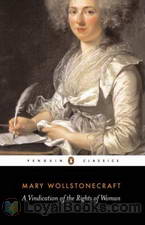 A Vindication of the Rights of Woman
A Vindication of the Rights of Woman
Regarded as the one of the earliest examples of feminist philosophy, A Vindication of the Rights of Woman is written as a direct response to Charles Maurice de Talleyrand-Périgord, a French politician who delivered a report to the French National Assembly suggesting that women should only receive domestic education and additionally encourages women to stay clear of political affairs. In her treatise, Wollstonecraft avidly criticizes this inadequate perception of women as an inferior sex and attacks social inequality, while also arguing for women’s rights in the hope of redefining their position both in society and in marriage... | |
By: Max Heindel (1865-1918) | |
|---|---|
 The Rosicrucian Mysteries
The Rosicrucian Mysteries
A primer for those interested in the basic philosophy, beliefs & secrets of the Rosicrucians. | |
By: Max Stirner (1806-1856) | |
|---|---|
 The Ego and His Own
The Ego and His Own
In this book, his most famous, Max Stirner presents a philosophical case for a radical egoism that shuns the socially-oriented outlooks of both "establishment" ideologies and of revolutionaries in favor of an extreme individualism. The book is most widely talked about today only through the lens of other philosophers' thought: Karl Marx and Friedrich Engels launched a famous assault on it in The German Ideology, and some draw a connection between Stirner's thoughts here and Nietzsche's egoism a generation later. But it is worth reading in its own right, as much for its lyricism as the challenge of its philosophical proposals. | |
By: Maximilian Schele De Vere (1820-1898) | |
|---|---|
 Modern Magic
Modern Magic
M. Schele de Vere was born in Sweden in 1820 and studied language in Germany before eventually becoming a professor of modern language at the University of Virginia in 1844 where he would teach for more than 50 years. During his time as a professor, he would write many books, mostly focusing on language. One of his last works, being first published in 1873, "Modern Magic" instead focuses on the occult. From the preface: "The main purpose of our existence on earth—aside from the sacred and paramount... | |
By: May Sinclair (1863-1946) | |
|---|---|
 Defence of Idealism
Defence of Idealism
The philosophy of Idealism, revived in eighteenth-century Europe by George Berkeley, argued against philosophical materialism by maintaining that Reality is a creation of the Mind. Despite its flourishing under the leadership of Hegel, Fichte, Schopenhauer, and Schelling, Idealism had definitely fallen into decline late in the nineteenth century and early in the twentieth. May Sinclair, the writer of many popular but philosophically provocative novels and part-time World War I ambulance corps-person, was an unlikely one to take up the torch of the old school and try to revive it yet again for the twentieth century... | |
By: Michel Eyquem de Montaigne (1533-1592) | |
|---|---|
 Essays, Book 1
Essays, Book 1
Michel Eyquem de Montaigne is one of the most influential writers of the French Renaissance, known for popularising the essay as a literary genre and is popularly thought of as the father of Modern Skepticism. He became famous for his effortless ability to merge serious intellectual speculation with casual anecdotes and autobiography—and his massive volume Essais (translated literally as "Attempts") contains, to this day, some of the most widely influential essays ever written. | |
By: Mikhail Bakunin (1814-1876) | |
|---|---|
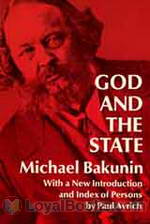 God and the State
God and the State
Bakunin’s most famous work, published in various lengths, this version is the most complete form of the work published hitherto. Originally titled “Dieu et l’état”, Bakunin intended it to be part of the second portion to a larger work named “The Knouto-Germanic Empire and the Social Revolution” (Knouto-Germanic Empire is in reference to a treaty betwixt Russia and Germany at the time), but the work was never completed. (from book introduction) | |
By: Mírzá Abu’l-Fadl Gulpáygání (1844-1914) | |
|---|---|
 The Brilliant Proof (Burhäne Lämé) in reply to an attack upon the Bahai Revelation by Peter Z. Easton
The Brilliant Proof (Burhäne Lämé) in reply to an attack upon the Bahai Revelation by Peter Z. Easton
“In these days,” writes the renowned Bahá’í scholar, Mírzá Abu’l-Fadl, “which are the latter days of 1911, A. D. and the early days of 1330 A. H., I have seen a curious article which astonished me. What did I see? I find that one of the missionaries of the Protestant sect, who accounts himself among the learned men of the twentieth century, a helper of the pure religion of Christ and one of the civilized and cultured occidentals, by name, Peter Z. Easton, has been so provoked by jealousy... | |
By: Nagarjuna | |
|---|---|
 She-rab Dong-bu (The Tree of Wisdom)
She-rab Dong-bu (The Tree of Wisdom)
The She-rab Dong-bu (Tree of Wisdom) is a metrical translation in Tibetan of a Sanscrit ethical work entitled Prajnya Danda, written by Nagarjuna who flourished in the fourth century of the Buddhist era (about 100 B.C.), The Tibetan version was probably made about the 11th century of our era but the exact date has not been determined. It is included in the Ten-gyur, ངོ་ section, volume གོ་, beginning at leaf 165. The Tibetan translator describes it as the second volume but I cannot say whether the remainder of the work has been preserved in Tibetan – the Sanscrit original is apparently lost. | |
By: Okakura Kakuzo (1863-1913) | |
|---|---|
 The Book of Tea
The Book of Tea
The Book of Tea was written by Okakura Kakuzo in the early 20th century. It was first published in 1906, and has since been republished many times. – In the book, Kakuzo introduces the term Teaism and how Tea has affected nearly every aspect of Japanese culture, thought, and life. The book is noted to be accessibile to Western audiences because though Kakuzo was born and raised Japanese, he was trained from a young age to speak English; and would speak it all his life, becoming proficient at communicating his thoughts in the Western Mind... | |
By: Omar Khayyám (1048-1131) | |
|---|---|
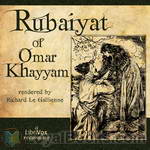 Rubáiyát of Omar Khayyám (Le Gallienne)
Rubáiyát of Omar Khayyám (Le Gallienne)
Richard le Gallienne was an English poet and critic, who, although unfamiliar with the Persian language, had a profound interest in the Rubaiyat of Omar Khayyam. In 1897 he published a collection of 211 quatrains, which was based on earlier English translations, in particular the prose version by Justin Huntly McCarthy. A expanded edition, containing fifty additional quatrains was published in 1901, and this has been used for the present recording. | |
 Quatrains of Omar Khayyam of Nishapur
Quatrains of Omar Khayyam of Nishapur
In 1906, Eben Francis Thompson,scholar and poet, published a limited edition of his translation of the Quatrains of Omar Khayyam. This edition contains 878 quatrains, and represents the most extensive translation of Omar's rubai in any language.In the Introduction, Nathan Haskell Dole writes: Mr Thompson has put into English verse this whole body of Persian poetry. It is a marvel of close translation, accurate and satisfactory. He has succeeded in doing exactly what he set out to do - to add nothing and to take nothing away, but to put into the typical quatrain, as determined by Fitzgerald and others, exactly what Omar and his unknown imitators said. | |
By: Patanjali | |
|---|---|
 The Yoga Sutras of Patanjali
The Yoga Sutras of Patanjali
Yoga sutras by Patanjali is a seminal work in yoga, this book is more about control of mind and the true goal of yoga. The sutras are extremely brief, and the translation in neat English makes it very easy for people to understand the ancient Sanskrit text. It starts with the birth and growth of spiritual man through the control of mind. In all, this is a "all in one" book for yoga philosophy written by the master himself. | |
By: Patrick Henry (1736-1799) | |
|---|---|
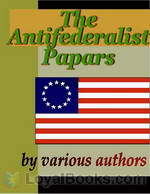 The Anti-Federalist Papers
The Anti-Federalist Papers
During the period of debate over the ratification of the Constitution, numerous independent local speeches and articles were published all across the country. Initially, many of the articles in opposition were written under pseudonyms, such as “Brutus”, “Centinel”, and “Federal Farmer”. Eventually, famous revolutionary figures such as Patrick Henry came out publicly against the Constitution. They argued that the strong national government proposed by the Federalists was a threat to the rights of individuals and that the President would become a king... | |
By: Peter Kropotkin (1842-1921) | |
|---|---|
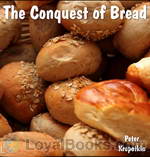 The Conquest of bread
The Conquest of bread
In this work, Kropotkin points out what he considers to be the fallacies of the economic systems of feudalism and capitalism, and how he believes they create poverty and scarcity while promoting privilege. He goes on to propose a more decentralised economic system based on mutual aid and voluntary cooperation, asserting that the tendencies for this kind of organisation already exist, both in evolution and in human society. | |
By: Philip Stanhope, 4th Earl of Chesterfield | |
|---|---|
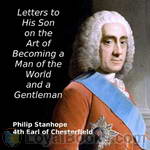 Letters to His Son on the Art of Becoming a Man of the World and a Gentleman
Letters to His Son on the Art of Becoming a Man of the World and a Gentleman
Philip Stanhope, Earl of Chesterfield, was at one time Ambassador to the Hague, negotiated the second Treaty of Vienna, was a founding governor of London’s Foundling Hospital, Lord-Lieutenant of Ireland, and Secretary of State. Having no legitimate children, his heir was his third cousin (another Philip) whom he adopted. Although known as a hard, calculating man, he is most well known for his letters to his natural son (i.e., illegitimate son) (also called Philip). When Philip died in 1768, the letters are addressed to his grandchildren (Philip’s two sons, Charles, and, yes, Philip!)... | |
By: Plato (427-347) | |
|---|---|
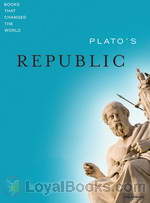 Plato's Republic
Plato's Republic
Plato's Republic is a Socratic dialogue which deals mainly with the definition of justice, the characteristics of a just city state and the just man. Although it was written more than two thousand years ago, many of the ideas and thoughts expounded here are still very much relevant to modern society. This is Plato's best known work and is also considered his most influential especially when it comes to the fields of philosophy and political theory. The Republic is divided into ten books and in each book Socrates discusses different topics from the immortality of the soul to the meaning of justice with his disciples like Glaucon, Thrasymachus, Adeimantus and others... | |
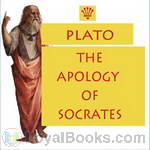 The Apology of Socrates
The Apology of Socrates
More than two thousand years ago, the great Greek philosopher Socrates was condemned to death for making seditious comments against the city state of Athens. His followers and disciples were legion. Ranging from Xenophon, the mercenary warrior and historian of the Peloponnesian War to the scholarly Plato, Socrates was described as the conscience-keeper of the nation, or the “gadfly” who would not let the massive machinery of the state rest in complacence. The Apology of Socrates by Plato was thought to have been written following Socrates trial and death in 399 BC... | |
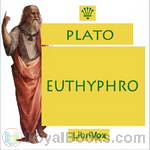 Euthyphro
Euthyphro
Awaiting his trial on charges of impiety and heresy, Socrates encounters Euthyphro, a self-proclaimed authority on matters of piety and the will of the gods. Socrates, desiring instruction in these matters, converses with Euthyphro, but as usual, the man who professes to know nothing fares better than the man who claims to be an expert. One of Plato’s well-known Socratic Dialogues, Euthyphro probes the nature of piety, and notably poses the so-called Euthyphro Dilemma: Do the gods love a thing because it is holy, or is a thing holy because it is loved by the gods? | |
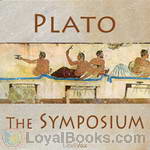 The Symposium
The Symposium
The Symposium (Ancient Greek: Συμπόσιον) is a philosophical book written by Plato sometime after 385 BCE. On one level the book deals with the genealogy, nature and purpose of love, on another level the book deals with the topic of knowledge, specifically how does one know what one knows. The topic of love is taken up in the form of a group of speeches, given by a group of men at a symposium or a wine drinking party at the house of the tragedian Agathon at Athens. Plato constructed the Symposium as a story within a story within a story... | |
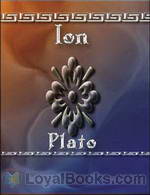 Ion
Ion
In Plato’s Ion, Socrates questions Ion on whether he should really claim laud and glory for his ‘rhapsodic’ recitals of Homer’s poetry. | |
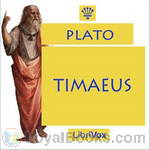 Timaeus
Timaeus
“Our intention is, that Timaeus, who is the most of an astronomer amongst us, and has made the nature of the universe his special study, should speak first, beginning with the generation of the world and going down to the creation of man…” ‘Timaeus’ is usually regarded as one of Plato’s later dialogues, and provides an account of the creation of the universe, with physical, metaphysical and ethical dimensions, which had great influence over philosophers for centuries following. It attributes the order and beauty of the universe to a benevolent demiurge – a ‘craftsman’ or god – fashioning the physical world after the pattern of an ideal, eternal one... | |
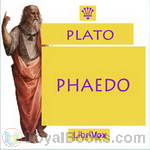 Phaedo
Phaedo
Plato's Phaedo is one of the great dialogues of his middle period, along with the Republic and the Symposium. The Phaedo, which depicts the death of Socrates, is also Plato's seventh and last dialogue to detail the philosopher's final days (the first six being Theaetetus, Euthyphro, Sophist, Statesman, Apology, and Crito).In the dialogue, Socrates discusses the nature of the afterlife on his last day before being executed by drinking hemlock. Socrates has been imprisoned and sentenced to death by an Athenian jury for not believing in the gods of the state and for corrupting the youth of the city... | |
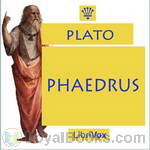 Phaedrus
Phaedrus
“For there is no light of justice or temperance, or any of the higher ideas which are precious to souls, in the earthly copies of them: they are seen through a glass, dimly…”Socrates and his earnest friend Phaedrus, enjoying the Athenian equivalent of a lunchtime stroll in the park, exchange views on love and on the power of words, spoken and written.Phaedrus is the most enchanting of Plato’s Erotic dialogues (capitalised in honour of the god). The barefoot philosopher urges an eager young... | |
 Apology
Apology
The Apology of Socrates is Plato's version of the speech given by Socrates as he unsuccessfully defended himself in 399 BC against the charges of "corrupting the young, and by not believing in the gods in whom the city believes, but in other daimonia that are novel" (24b). "Apology" here has its earlier meaning (now usually expressed by the word "apologia") of speaking in defense of a cause or of one's beliefs or actions (from the Ancient Greek ἀπολογία). | |
 Meno
Meno
Meno (Ancient Greek: Μένων) is a Socratic dialogue written by Plato. Written in the Socratic dialectic style, it attempts to determine the definition of virtue, or arete, meaning in this case virtue in general, rather than particular virtues, such as justice or temperance. The goal is a common definition that applies equally to all particular virtues. Socrates moves the discussion past the philosophical confusion, or aporia, created by Meno's paradox (aka the learner's paradox) with the introduction of new Platonic ideas: the theory of knowledge as recollection, anamnesis, and in the final lines a movement towards Platonic idealism.. (Introduction by Wikipedia) | |
 Laws
Laws
Νόμοι (Laws) is Plato's final dialogue written after his attempt to advise the tyrant Dionysius II of Syracuse. The dialogue takes place between: an Athenian Stranger (Socrates? A god in human form?); the quiet Lacedaemonian Megillus; and the Cretan Cleinias. The Stranger asks whether humans live to be more effective at waging war or if there is something more important a legislator should seek to achieve. During their pilgrimage Cleinias discloses his role in the establishment of a new colony... | |
By: Rabindranath Tagore (1861-1941) | |
|---|---|
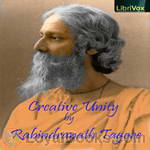 Creative Unity
Creative Unity
Gurudev Rabindranath Tagore talks of the many things he feels is necessary for creativity through joy of unity, he covers many topics like the creative ideal, makes comparisons of creativity between the east and the west, the spirit of freedom and about his idea of an University. | |
By: Ralph Waldo Emerson | |
|---|---|
 Nature
Nature
“Nature” is a short essay by Ralph Waldo Emerson published anonymously in 1836. It is in this essay that the foundation of transcendentalism is put forth, a belief system that espouses a non-traditional appreciation of nature. Recent advances in zoology, botany, and geology confirmed Emerson’s intuitions about the intricate relationships of nature at large. The publication of “Nature” is usually taken to be the watershed moment at which transcendentalism became a major cultural movement... | |
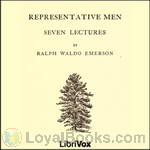 Representative Men
Representative Men
A series of biographical lectures originally published in 1850. Each chapter is a philosophical treatment of the life of an intellectual. The six representatives are Plato, Swedenborg, Shakespeare, Montaigne, Napolean and Goethe. (Introduction by S. Kovalchik) | |
By: René Descartes (1596-1650) | |
|---|---|
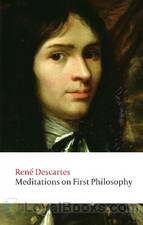 Meditations on First Philosophy
Meditations on First Philosophy
The foundations of modern skepticism and objective thinking are thought to be rooted in the philosophy of Rene Descartes, the French mathematician, philosopher and writer. This great sixteenth century thinker also gave us theories on mind-body dualism and the concept of ethics as the highest form of science. He is considered the Father of Modern Western Philosophy. His theories also led to the emancipation of humanity from the doctrine that the Church is the sole authority over Man and led to a more autonomous idea of the human condition... | |
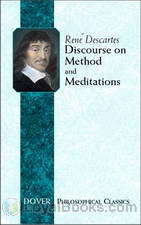 Discourse on the Method of Rightly Conducting One's Reason and of Seeking Truth in the Sciences
Discourse on the Method of Rightly Conducting One's Reason and of Seeking Truth in the Sciences
The Discourse on Method is best known as the source of the famous quotation “cogito ergo sum”, “I think, therefore I am.” …. It is a method which gives a solid platform from which all modern natural sciences could evolve. With this work, the idea of skepticism was revived from the ancients such as Sextus Empiricus and modified to account for a truth that Descartes found to be incontrovertible. Descartes started his line of reasoning by doubting everything, so as to assess the world from a fresh perspective, clear of any preconceived notions. | |
By: Richard W. Church (1815-1890) | |
|---|---|
 Bacon
Bacon
This investigation of Bacon the scholar and man of letters begins with a look at the early days ang progresses to his relationships with Queen Elizabeth and James I. It includes accounts of his positions as solicitor general, attorney-general, and chancellor. The book concludes with Bacon's failure, his overall philosophy, and summaries of his writings. | |
By: Robert W. Service (1874-1958) | |
|---|---|
 Selections from Ballads of a Cheechako
Selections from Ballads of a Cheechako
These twelve poems are from Ballads of a Cheechako which was Robert W. Service’s third book of Yukon poems, published in 1909. The word Cheechako, from Chinook Jargon, originated in the United States (Alaska) and Canada (Yukon) and was imported into local English during the Yukon gold rush that began in 1896. Cheechako, is a non derogatory word meaning “newcomer” or “tenderfoot.” The derivation looks something like this: chee new cha come ko home. | |
By: Rupert Brooke | |
|---|---|
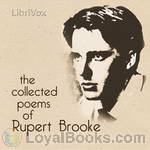 Collected Poems of Rupert Brooke
Collected Poems of Rupert Brooke
Rupert Chawner Brooke (August 3, 1887 – April 23, 1915) was an English poet known for his idealistic War Sonnets written during the First World War (especially The Soldier), as well as for his poetry written outside of war, especially The Old Vicarage, Grantchester and The Great Lover. He was also known for his boyish good looks, which prompted the Irish poet William Butler Yeats to describe him as “the handsomest young man in England”. | |
By: Saint Augustine of Hippo (354-420) | |
|---|---|
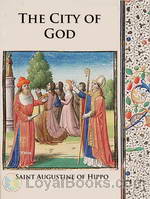 The City of God
The City of God
Rome having been stormed and sacked by the Goths under Alaric their king, the worshipers of false gods, or pagans, as we commonly call them, made an attempt to attribute this calamity to the Christian religion, and began to blaspheme the true God with even more than their wonted bitterness and acerbity. It was this which kindled my zeal for the house of God, and prompted me to undertake the defense of the city of God against the charges and misrepresentations of its assailants. This work was in my hands for several years, owing to the interruptions occasioned by many other affairs which had a prior claim on my attention, and which I could not defer... | |
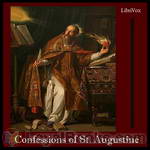 Confessions
Confessions
Confessions (Latin: Confessiones) is the name of an autobiographical work, consisting of 13 books, by St. Augustine of Hippo, written between AD 397 and AD 398. Modern English translations of it are sometimes published under the title The Confessions of St. Augustine in order to distinguish the book from other books with similar titles, such as Jean-Jacques Rousseau’s Confessions. | |
By: Saint Thomas Aquinas (1225-1274) | |
|---|---|
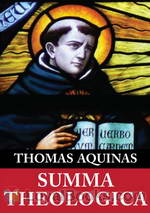 Summa Theologica, Pars Prima
Summa Theologica, Pars Prima
More than nine hundred years after it was first written, this unfinished work of a scholar saint still has the power to move our minds and hearts and set us thinking on the really important questions of life. Summa Theologica or simply the Summa as it is known, was written some time between 1265-74. It is a work that has had a profound and enduring influence on Western thought and literature. Designed to provide answers to Catholic theologians about the teachings of the Church, Thomas Aquinas' book instead goes far beyond its stated purpose... | |
By: Samuel Butler (1835-1902) | |
|---|---|
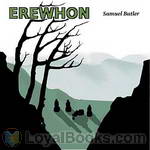 Erewhon
Erewhon
Erewhon, or Over the Range is a novel by Samuel Butler, published anonymously in 1872. The title is also the name of a country, supposedly discovered by the protagonist. In the novel, it is not revealed in which part of the world Erewhon is, but it is clear that it is a fictional country. Butler meant the title to be read as the word Nowhere backwards, even though the letters “h” and “w” are transposed. It is likely that he did this to protect himself from accusations of being unpatriotic, although Erewhon is obviously a satire of Victorian society. | |
By: Samuel D. Gordon (1859-1936) | |
|---|---|
 Quiet Talks about Jesus
Quiet Talks about Jesus
So far as I can find out, I have no theory about Jesus to make these talks fit into. I have tried to find out for myself what the old Book of God tells about Him. And here I am trying to tell to others, as simply as I can, what I found. It was by the tedious, twisting path of doubt that I climbed the hill of truth up to some of its summits of certainty. I am free to confess that I am ignorant of the subject treated here save for the statements of that Book, and for the assent within my own spirit to these statements, which has greatly deepened the impression they made, and make... | |
By: Sigmund Freud | |
|---|---|
 Reflections on War and Death
Reflections on War and Death
Anyone, as Freud tells us in Reflections on War and Death, forced to react against his own impulses may be described as a hypocrite, whether he is conscious of it or not. One might even venture to assert—it is still Freud’s argument—that our contemporary civilisation favours this sort of hypocrisy and that there are more civilised hypocrites than truly cultured persons, and it is even a question whether a certain amount of hypocrisy is not indispensable to maintain civilisation. When this... | |
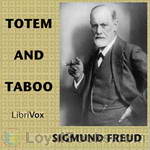 Totem and Taboo
Totem and Taboo
Totem and Taboo: Resemblances Between the Mental Lives of Savages and Neurotics is a book by Sigmund Freud, published in German in 1913. It is a collection of four essays first published in the journal Imago (1912–13), employing the application of psychoanalysis to the fields of archaeology, anthropology, and the study of religion. The four essays are entitled: The Horror of Incest; Taboo and Emotional Ambivalence; Animism, Magic and the Omnipotence of Thoughts; and The Return of Totemism in Childhood. | |
By: Sir Edwin Arnold (Translator) (1832-1904) | |
|---|---|
 Bhagavad Gita
Bhagavad Gita
One of the world’s most valued scriptures, the Bhagavad Gita is a Hindu scripture which is a part of the Indian epic Mahabharata. Undeniably, it is also one of the most important texts in the history of literature and philosophy. The scripture offers a guide on how to achieve a self-sufficient life and clarification of Indian theology. Written in the form of a poetic dialogue between Krishna and Arjuna, the piece is comprised of 700 verses. It depicts the relationship between man and God, a divine purpose, and the omnipresence of God that serves to reward good... | |
By: Sir Thomas More (1478-1535) | |
|---|---|
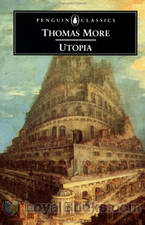 Utopia
Utopia
He was a trusted aide of Henry VIII, but when he supposedly opposed the monarch's second marriage, he was thrown into prison and executed for treason. More than two hundred years later, he was canonized as the patron saint of statesmen and politicians by the Catholic Church. Philosopher, writer, diplomat, lawyer, Renaissance man, avid gardener, humanist thinker and statesman are only some of the words used to describe him. A lifelong opponent of Protestantism who was rumored to have had heretics imprisoned, murdered and burned at the stake, Thomas More is even today an enigmatic figure... | |
By: St. George Stock (b. 1850) | |
|---|---|
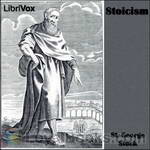 Stoicism
Stoicism
This short book is part of the Philosophies Ancient and Modern series, which attempts to make Western philosophy more accessible to the general public. In this volume, George Stock provides a concise primer on Stoicism, the ancient philosophy that maintained that the universe is governed entirely by fate, and that humans can achieve happiness only by cultivating a calm acceptance of the vicissitudes of life. Among the Stoics of the Greek and Roman world were its founder, Zeno, the former slave Epictetus, and the Roman emperor Marcus Aurelius... | |
By: St. George William Joseph Stock (1850-?) | |
|---|---|
 Guide to Stoicism
Guide to Stoicism
This book is a primer on the philosophy of stoicism, resurrected from its origins in Greek and Roman philosophy. The original philosophy was based on a reasoning process which it was assumed would lead to a virtuous life. Zeno, the founder of stoicism, did not begin expounding on its teachings until he was in his forties. He believed that the purpose of life was "to live consistently." Cleanthes, his disciple, added "with nature," so that the purpose of life became "to live consistently with nature." | |
By: St. John Chrysostom (349-407) | |
|---|---|
 Commentary on Galatians
Commentary on Galatians
St. Chrysostom’s Commentary on the Epistle to the Galatians is continuous, according to chapter and verse, instead of being arranged in Homilies, with a moral or practical application at their close, as in his exposition of other Epistles. It was written in Antioch, as Montfaucon infers from a reference which the Author, makes upon Chap. i., ver. 16 to other of his writings, which certainly were written about the same time in that city. (Introduction from the preface by John Henry Newman) | |
By: St. Teresa of Avila (1515-1582) | |
|---|---|
 Book of the Foundations
Book of the Foundations
Essentially the sequel to The Life of St. Teresa, Teresa recounts the foundations of the Discalced Carmelite monasteries in Spain, both for men and women. This book tells of all the triumphs and troubles, and about the many people who helped her.(Introduction by Ann Boulais) | |
By: the Three Initiates (1908) | |
|---|---|
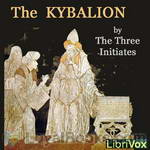 The Kybalion
The Kybalion
The Kybalion: Hermetic Philosophy is a 1908 book claiming to be the essence of the teachings of Hermes Trismegistus, published anonymously by a group or person under the pseudonym of “the Three Initiates”. (Introduction by Wikipedia) | |
By: The Three Initiates | |
|---|---|
 Kybalion (version 2)
Kybalion (version 2)
The Kybalion: Hermetic Philosophy is a 1908 book claiming to be the essence of the teachings of Hermes Trismegistus, published anonymously by a group or person under the pseudonym of "the Three Initiates". The Kybalion was first published in 1908 by the Yogi Publication Society and is now in the public domain, and can be found on the internet. The book purports to be based upon ancient Hermeticism, though many of its ideas are relatively modern concepts arising from the New Thought movement. The book early on makes the claim that it makes its appearance in one's life when the time is appropriate and includes variations of material found in the book of Proverbs... | |
By: Théodule Ribot (1839-1916) | |
|---|---|
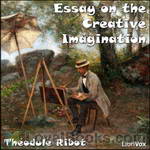 Essay on the Creative Imagination
Essay on the Creative Imagination
“It is quite generally recognized that psychology has remained in the semi-mythological, semi-scholastic period longer than most attempts at scientific formulization. For a long time it has been the “spook science” per se, and the imagination, now analyzed by M. Ribot in such a masterly manner, has been one of the most persistent, apparently real, though very indefinite, of psychological spooks. Whereas people have been accustomed to speak of the imagination as an entity sui generis, as a... | |
By: Thomas Browne | |
|---|---|
 Religio Medici and Hydriotaphia
Religio Medici and Hydriotaphia
Religio Medici (The Religion of a Doctor) sets out Sir Thomas Browne's spiritual testament as well as being an early psychological self-portrait. In its day, the book was a European best-seller. It was published in 1643 by the newly-qualified physician, and its unorthodox views placed it swiftly upon the Papal Index Librorum Prohibitorum in 1645. Although predominantly concerned with Christian faith, the Religio also meanders into digressions upon alchemy, hermetic philosophy, astrology, and physiognomy... | |
By: Thomas H. Burgoyne (1855-1894) | |
|---|---|
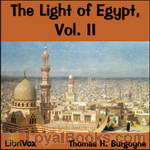 The Light of Egypt, vol II
The Light of Egypt, vol II
"The Light of Egypt" will be found to be an Occult library in itself, a textbook of esoteric knowledge, setting forth the "wisdom Religion" of life, as taught by the Adepts of Hermetic Philosophy. It will richly repay all who are seeking the higher life to carefully study this book, as it contains in a nutshell the wisdom of the ages regarding man and his destiny, here and hereafter. The London and American first edition, also the French edition, Vol. I, met with lively criticism from Blavatsky Theosophists, because it annihilates that agreeable delusion of "Karma" and "Reincarnation" from the minds of all lovers of truth for truth's sake. | |
By: Thomas Henry Huxley (1825-1895) | |
|---|---|
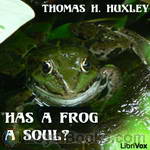 Has a Frog a Soul?
Has a Frog a Soul?
Thomas Huxley, known as “Darwin’s Bulldog” for his championing and development of Darwinism, was perhaps the most important Victorian biologist after Darwin himself. This speech to the Metaphysical Society in 1870 is one of Huxley’s best known texts outside the sphere of his specialism, and remains read today by students of philosophy. In it, Huxley argues from the results of vivisection to metaphysics. | |
By: Thomas Hobbes (1588-1679) | |
|---|---|
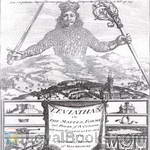 Leviathan, or The Matter, Forme and Power of a Common Wealth Ecclesiasticall and Civil
Leviathan, or The Matter, Forme and Power of a Common Wealth Ecclesiasticall and Civil
Books 1 and 2. Leviathan, or The Matter, Forme and Power of a Common Wealth Ecclesiasticall and Civil is a book written in 1651 by Thomas Hobbes. The book concerns the structure of society (as represented figuratively by the frontispiece, showing the state giant made up of individuals). In the book, Hobbes argues for a social contract and rule by a sovereign. Influenced by the English Civil War, Hobbes wrote that chaos or civil war – situations identified with a state of nature and the famous motto bellum omnium contra omnes (”the war of all against all”) – could only be averted by strong central government... | |
By: Thomas Paine | |
|---|---|
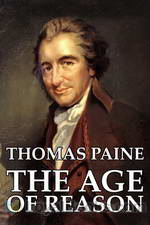 The Age of Reason
The Age of Reason
A Universalist book, The Age of Reason advocates for the existence of natural religion and challenges the structure of all organized religion. First written and distributed as pamphlets, the book was later published into two parts. Paine puts forward his personal beliefs, debating reason and revelation, while analyzing the Bible and the influence organized religion has on society. Exploring topics including natural religion, criticism of corrupt religious institutions, and distinction between rationality and blind faith in the supernatural, the book presents a guide for the conscious and free spiritual thinkers... | |
 Age of Reason (version 2)
Age of Reason (version 2)
The Age of Reason; Being an Investigation of True and Fabulous Theology is a pamphlet, written by a British and American revolutionary Thomas Paine. The Age of Reason challenges institutionalized religion and challenges the legitimacy of the Bible, the central sacred text of Christianity. Published in three parts in 1794, 1795, and 1807, it was a bestseller in the United States, where it caused a short-lived deistic revival. Part 1 was written sometime in 1793, and attacks the concepts of divine revelation and inspiration... | |
By: Thomas R. Malthus (1766-1834) | |
|---|---|
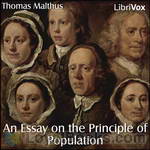 An Essay on the Principle of Population
An Essay on the Principle of Population
The power of population is indefinitely greater than the power in the earth to produce subsistence for man. Population, when unchecked, increases in a geometrical ratio. Subsistence increases only in an arithmetical ratio. A slight acquaintance with numbers will show the immensity of the first power in comparison with the second (Malthus). | |
By: Thomas Troward (1847-1916) | |
|---|---|
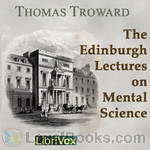 The Edinburgh Lectures on Mental Science
The Edinburgh Lectures on Mental Science
Thomas Troward was a divisional Judge in British-administered India. His avocation was the study of comparative religion. Influences on his thinking, as well as his later writing, included the teachings of Christ, Islam, Hinduism, and Buddhism. After his retirement from the judiciary in 1896, Troward set out to apply logic and a judicial weighing of evidence in the study of matters of cause and effect. The philosopher William James characterized Troward’s Edinburgh Lectures on Mental Science as "far and away the ablest statement of philosophy I have met, beautiful in its sustained clearness of thought and style, a really classic statement... | |
By: Twentieth Century New Testament | |
|---|---|
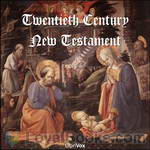 Twentieth Century New Testament
Twentieth Century New Testament
Published in 1904, The Twentieth Century New Testament is considered the first translation of the Bible into modern English. It was produced in Britain over a period of 15 years by approximately 20 people -- ministers, housewives, school teachers and businessmen -- who were united by their desire for a New Testament in the language of the people. They were advised by such scholars as J. Rendel Harris and Richard Weymouth so their rendering is quite accurate. In addition they made some effort at rearranging the New Testament books in the order scholars believe they were written -- Mark comes before Matthew, for instance... | |
By: Unknown | |
|---|---|
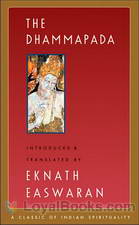 The Dhammapada
The Dhammapada
The Dhammapada is is a Buddhist scripture, containing 423 verses in 26 categories. According to tradition, these are verses spoken by the Buddha on various occasions, most of which deal with ethics. It is is considered one of the most important pieces of Theravada literature. Despite this, the Dhammapada is read by many Mahayana Buddhists and remains a very popular text across all schools of Buddhism. – Excerpted from Wikipedia | |
 Oscar Wilde: Art and Morality. A Defence of The Picture of Dorian Gray
Oscar Wilde: Art and Morality. A Defence of The Picture of Dorian Gray
“Who can help laughing when an ordinary journalist seriously proposes to limit the subject-matter at the disposal of the artist?” “We are dominated by journalism…. Journalism governs for ever and ever.” One of the nastiest of the British tabloids was founded a year too late to join in the moral panic generated to accompany Oscar Wilde’s court appearances in 1895. Yet there was no shortage of hypocritical journalists posing as moral arbiters to the nation, then as now. This compendium... | |
 Cratylus
Cratylus
Cratylus (ΚΡΑΤΥΛΟΣ) discusses whether things have names by mere convention or have true names which can only be correctly applied to the object named and may have originated from God. | |
 Philebus
Philebus
Philebus (ΦΙΛΗΒΟΣ) discusses pleasure, wisdom, soul and God. | |
 Dhammapada (Version 3)
Dhammapada (Version 3)
The Dhammapada collects sayings of the Buddha, offering advice on how to live a full and thoughtful life. The translation used for this recording is by Friedrich Max Müller and was first published in the 19th century. - Summary by Newgatenovelist | |
By: Upton Sinclair (1878-1968) | |
|---|---|
 Book of Life
Book of Life
Faith and reason, love and virtue, morality and mortality! In these two short volumes the famous novelist, essayist, and playwright, Upton Sinclair, confided his most prized worldly wisdom for generations to come. His kind and witty personal advice both provokes and enlightens page by page. | |
By: Various | |
|---|---|
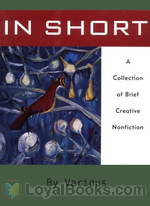 Short Nonfiction Collection
Short Nonfiction Collection
A collection of ten short essays or other short nonfiction works in the public domain. | |
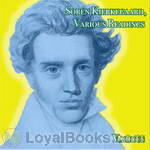 Soren Kierkegaard, Various Readings
Soren Kierkegaard, Various Readings
The writings listed here represent books about Soren Kierkegaard. A fragment of his work, On the Dedication to "That Single Individual", has made it to the public domain. Who was Soren Kierkegaard? He was a Danish philosopher and religious author; b. Copenhagen May 6, 1813; d. there Nov. 11, 1855. His father, Michael, a clothing merchant, once cursed God when he was young. This one incident caused him so much distress that it affected him with a deep melancholy, which he transferred to poor Soren... | |
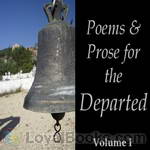 Poems and Prose for the Departed
Poems and Prose for the Departed
This is a collection of short poems and readings, both religious and secular, on death and bereavement. | |
 Girl Scout Collection
Girl Scout Collection
These articles, pamphlets, and stories relating to the Girls Scouts of America touch on the history, activities, ideals, and traditions of this remarkable girls' organization. Though some of the articles appear redundant, they were selected to represent a contemporary view spanning five years of the organization's early popularity (1917-1921). Of significance are the detailed descriptions of Girl Scout involvement in war work during what is now known as World War I. Girl Scouts were prepared through their training for merit badges to be independent, resourceful, reliable, and helpful... | |
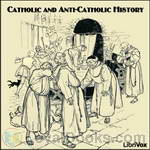 Catholic and Anti-Catholic History
Catholic and Anti-Catholic History
G.K. Chesterton and James Walsh join Hilaire Belloc in an energetic rollout of the means by which history becomes propaganda, to the damage, not only to truth, but to the human soul. | |
 John Stuart Mill; His Life and Works
John Stuart Mill; His Life and Works
This biography is actually a series of essays by prominent personalities of the time that shed light on John Stuart Mill's life and areas of endeavor. Those areas include his experiences in India House, his moral character, certain botanical explorations, how effective he was as a critic, studies in morals and the law, and discoveries concerning political economy. They also explore ideas concerning his influence on institutions of higher learning, accomplishments as a politician, and fame as a philosopher. | |
By: Varous | |
|---|---|
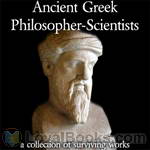 Ancient Greek Philosopher-Scientists
Ancient Greek Philosopher-Scientists
The Pre-Socratic Greek philosophers, that is, the philosopher-scientists who lived before or contemporaneously to Socrates, were the first men in the Western world to establish a line of inquiry regarding the natural phenomena that rejected the traditional religious explanations and searched for rational explanations. Even though they do not form a school of thought, they can be considered the fathers of philosophy and many other sciences as we have them now. None of their works is extant, so, in this collection, we present the textual fragments, when existing, of ten Pre-Socratic philosopher-scientists, and quotations and testimonials about them left by later authors... | |
By: Vladimir Ilyich Lenin (1870-1924) | |
|---|---|
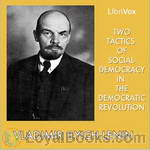 Two Tactics of Social-Democracy in the Democratic Revolution
Two Tactics of Social-Democracy in the Democratic Revolution
In the heat of the failed 1905 revolution in Russia, Lenin here contrasts the precision of the Bolshevik political program and tactics with various inconsistent and servile factions within the Russian Social-Democratic Labor Party. | |